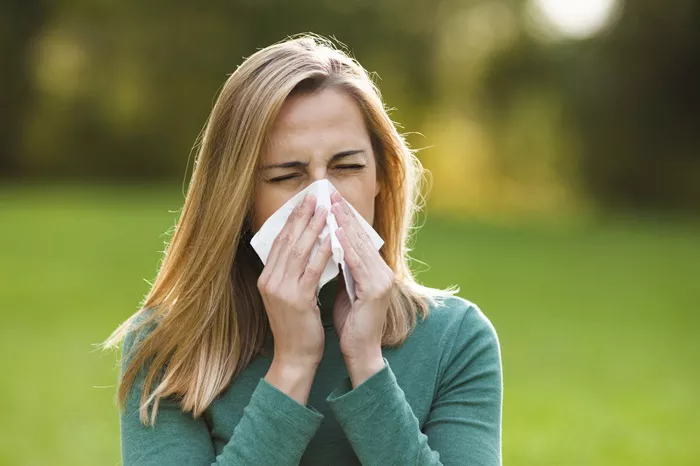Allergies are among the most common chronic conditions worldwide, affecting millions of people of all ages. Despite the extensive research and medical advancements made in the field of immunology, a definitive cure for allergies remains elusive. This article delves into the reasons why allergies persist without a cure, examining the complex nature of the immune system, the multifactorial causes of allergic reactions, and the challenges faced by researchers in developing a universal remedy.
Allergies
Allergies occur when the immune system mistakenly identifies a harmless substance as a threat. This substance, known as an allergen, can be anything from pollen to pet dander, certain foods, or even insect venom. Upon exposure to the allergen, the immune system overreacts, leading to symptoms ranging from mild (sneezing, itching) to severe (anaphylaxis).
The Role of the Immune System
The immune system is the body’s defense mechanism against pathogens such as bacteria, viruses, and parasites. It is designed to recognize and destroy these harmful invaders. However, in the case of allergies, the immune system misinterprets harmless substances as dangerous, triggering an inflammatory response. This response is mediated by Immunoglobulin E (IgE) antibodies, which bind to allergens and signal immune cells to release histamine and other chemicals, causing the symptoms associated with allergic reactions.
The Complexity of Allergic Reactions
One of the primary reasons there is no cure for allergies lies in the complexity of allergic reactions themselves. Allergies are not a single disease but a group of disorders with varying triggers, symptoms, and severities. The immune response involved in allergies is a multifaceted process that differs from person to person, making it difficult to develop a one-size-fits-all cure.
Genetic Predisposition
Allergies often run in families, suggesting a strong genetic component. Individuals with a family history of allergies are more likely to develop them. However, the exact genes responsible for this predisposition are not well understood, and the interplay between genetics and environmental factors adds another layer of complexity. Researchers have identified certain genetic markers associated with an increased risk of allergies, but these are not definitive predictors, making it challenging to target them for treatment.
Environmental Factors
The rise in allergy cases over recent decades has been linked to various environmental factors, including pollution, dietary changes, and lifestyle shifts. The “hygiene hypothesis” suggests that reduced exposure to pathogens in early childhood due to improved sanitation and less outdoor play may lead to an underdeveloped immune system, increasing susceptibility to allergies. This theory highlights the role of environmental factors in the development of allergies, further complicating the search for a cure.
Variability of Allergens
Allergens vary widely in their nature and the way they affect individuals. Some people may only react to one type of pollen, while others may be allergic to multiple substances, including food, dust mites, or animal dander. The diversity of allergens and the individual differences in immune responses mean that a universal cure would need to address a vast array of triggers and mechanisms, a daunting task for medical researchers.
See Also: Which Allergy Medicine Works Best: A Comprehensive Guide
Challenges in Allergy Treatment
Current treatments for allergies focus on managing symptoms rather than curing the condition. These include antihistamines, corticosteroids, and allergen immunotherapy (also known as allergy shots). While these treatments can be effective in reducing symptoms and improving quality of life, they do not address the underlying cause of allergies.
Symptom Management vs. Cure
Most allergy treatments aim to manage symptoms by reducing inflammation and blocking the effects of histamine, the chemical responsible for many allergic symptoms. Antihistamines, for example, work by blocking histamine receptors, preventing the symptoms of an allergic reaction. However, these treatments do not stop the immune system from reacting to allergens in the first place, which is why they are not considered cures.
Immunotherapy
Allergen immunotherapy, which involves gradually exposing the patient to increasing amounts of an allergen to desensitize the immune system, is currently the closest approach to a potential cure. Over time, this treatment can reduce the severity of allergic reactions and even lead to long-term remission in some patients. However, immunotherapy is not effective for all types of allergies, and its success varies from person to person. The treatment process is lengthy, sometimes lasting several years, and it carries risks, including severe allergic reactions.
The Quest for a Cure
The search for a cure for allergies is an active area of research, with scientists exploring various avenues to understand and potentially reverse the mechanisms behind allergic reactions. Despite significant progress, several challenges remain.
The Complexity of the Immune System
The immune system’s complexity is both a marvel and a hurdle in the quest for an allergy cure. It is an intricate network of cells, molecules, and signaling pathways that work together to protect the body. Allergies involve multiple components of the immune system, including IgE antibodies, mast cells, and T-helper cells, each playing a role in the allergic response. Targeting one aspect of this response without disrupting the entire immune system is a delicate balance that researchers are still trying to achieve.
Genetic Engineering and CRISPR
Recent advancements in genetic engineering, particularly the CRISPR-Cas9 technology, have opened new possibilities for treating allergies at the genetic level. Scientists are investigating whether it is possible to modify the genes responsible for allergic responses, potentially preventing the immune system from reacting to allergens. While this research is still in its early stages, it offers a promising avenue for future allergy treatments.
Monoclonal Antibodies
Monoclonal antibodies, which are lab-made molecules designed to target specific proteins in the body, have shown potential in treating severe allergies. One such drug, omalizumab, targets IgE, the antibody responsible for triggering allergic reactions. By binding to IgE, omalizumab prevents it from attaching to allergens and initiating the allergic response. While this treatment has been effective in managing severe asthma and chronic hives, it is not a cure and must be administered regularly to maintain its effects.
The Future of Allergy Treatments
The future of allergy treatments is likely to involve a combination of approaches, including immunotherapy, genetic engineering, and targeted medications. As researchers continue to unravel the complexities of the immune system and the factors that contribute to allergic reactions, new treatments may emerge that bring us closer to a cure.
Personalized Medicine
One promising direction is the development of personalized medicine, where treatments are tailored to the individual’s genetic makeup and specific allergies. By understanding the unique factors that contribute to each person’s allergic responses, doctors could design targeted therapies that are more effective and have fewer side effects. Personalized medicine could also involve the use of biomarkers to predict which patients are most likely to benefit from certain treatments, improving outcomes and reducing the trial-and-error approach currently used in allergy management.
Vaccines for Allergies
Another exciting area of research is the development of vaccines for allergies. Unlike traditional allergy shots, these vaccines would aim to reprogram the immune system to tolerate allergens without the need for long-term treatment. Early studies in animal models have shown promise, but it will likely be years before such vaccines are available for widespread use.
Conclusion
The lack of a cure for allergies can be attributed to the complex and multifactorial nature of allergic reactions, the variability in individual responses, and the challenges inherent in targeting the immune system without disrupting its essential protective functions. While current treatments focus on symptom management, ongoing research offers hope for more effective therapies in the future. As our understanding of the immune system and the genetic and environmental factors that contribute to allergies continues to grow, the dream of a cure may one day become a reality.
[inline_related_posts title=”You Might Be Interested In” title_align=”left” style=”list” number=”6″ align=”none” ids=”4564,2775,11241″ by=”categories” orderby=”rand” order=”DESC” hide_thumb=”no” thumb_right=”no” views=”no” date=”yes” grid_columns=”2″ post_type=”” tax=””]






























